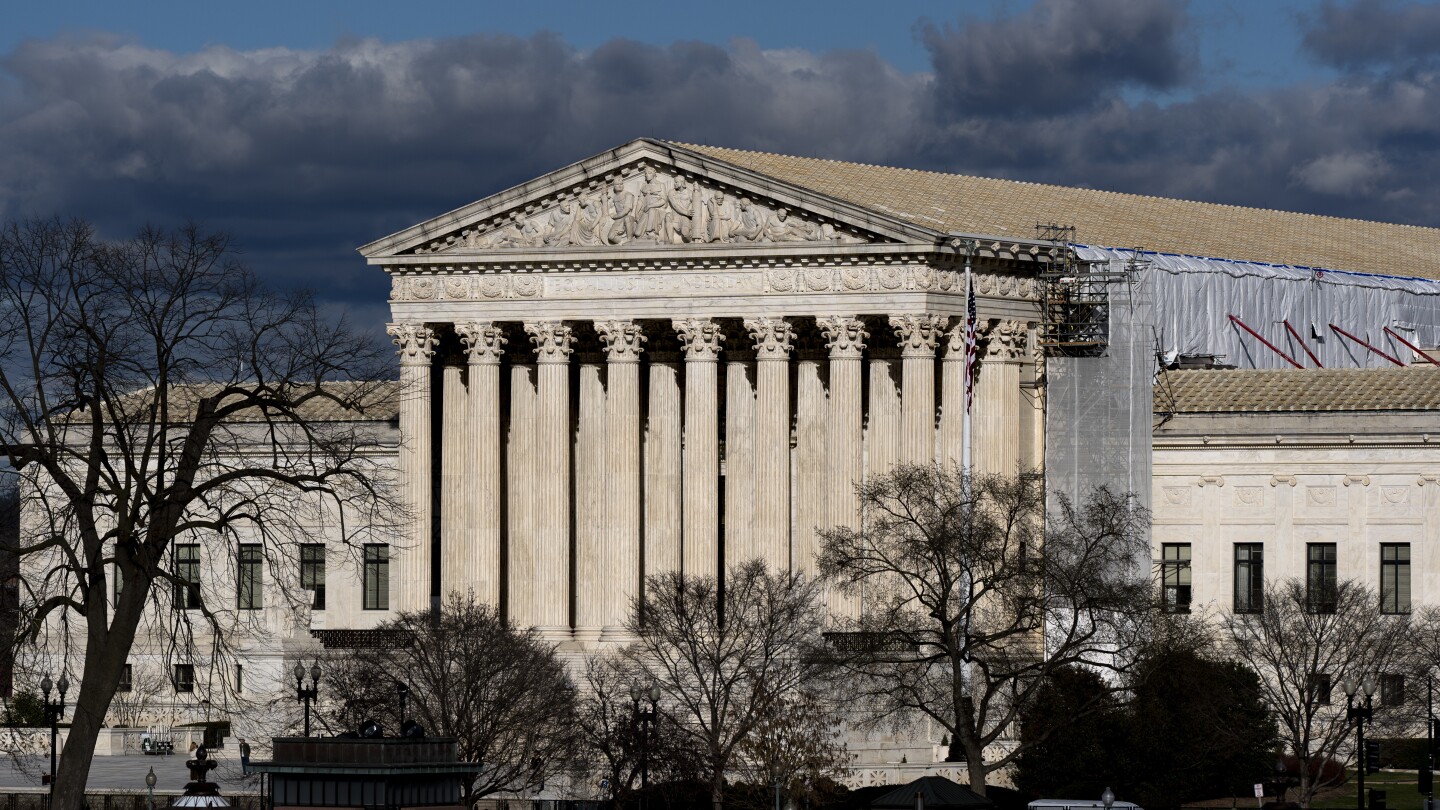The Supreme Court on Wednesday made it easier for workers who are transferred from one job to another against their will to pursue job discrimination claims under federal civil rights law, even when they are not demoted or docked pay.
Workers only have to show that the transfer resulted in some, but not necessarily significant, harm to prove their claims, Justice Elena Kagan wrote for the court.
The justices unanimously revived a sex discrimination lawsuit filed by a St. Louis police sergeant after she was forcibly transferred, but retained her rank and pay.
Sgt. Jaytonya Muldrow had worked for nine years in a plainclothes position in the department’s intelligence division before a new commander reassigned her to a uniformed position in which she supervised patrol officers. The new commander wanted a male officer in the intelligence job and sometimes called Muldrow “Mrs.” instead of “sergeant,” Kagan wrote.
Muldrow sued under Title VII of the Civil Rights Act of 1964, which prohibits workplace discrimination on the basis of race, sex, religion and national origin. Lower courts had dismissed Muldrow’s claim, concluding that she had not suffered a significant job disadvantage.
IANAL, could this potentially be used for forced relocations caused by return to office mandates for previously fully remote jobs?
This is a discrimination case, which currently only applies to protected classes, such as race, religion, age, etc. But age discrimination can begin at 40 years old, so it’s a class that everyone eventually gets to be a part of…if they are lucky enough to live that long.
It’s also a clear discrimination case, in that the commander made it pretty clear that she was being moved because of her sex. Mandating that all employees return to the office, regardless of protected class, probably wouldn’t pass the sniff test.
Only if A) the job was remote when accepted (meaning you weren’t in the office before COVID), and B) you have some disability preventing you from getting to or working in an office.
I think that would still help a surprising number of people
It certainly doesn’t hurt, but she won based on it being an illegal form of discrimination causing some form of harm, a non-discriminatory policy might be viewed differently.
I mean, it does unnecessarily impact specific subsets of people (people who are unable to drive due to disabilities, people that can’t relocate to certain areas due to severe allergies, medical conditions that have very limited specialists available to treat, etc)
ADA covers a bit of that already, and can already be effectively welded against return to office policies, but they are individual specific exceptions to a global policy. This was targeted illegal discrimination.
*“No, not like that!” *
Only if that job was remote because of the disability.
Otherwise, no.
Extremely rare supreme court w
Oh Tesla is so fucked and I couldn’t be happier.
Workers also describe the Fremont factory as being racially segregated. Tesla has erected a tent behind the factory building in which additional production happens; it offers little protection from the cold at night, portable toilets instead of proper bathrooms, and no indoor places to eat. Black workers say that they are more likely than others to be forced to work in the tent. They are also disproportionately assigned the most physically demanding tasks on the factory floor, such as lifting heavy panes of glass and installing bulky car seats. Non-Black workers are more likely to work in electronics, quality assurance, and the office—jobs that can be done while sitting.
…
Moses Sullivan hoped his experience in accounting and his bachelor’s degree would help him get a job in Tesla’s accounting department. He started working on the factory floor in January 2020 to “get my foot in the door,” he said. Then he was assigned to a tent behind the building. “It was a Jim Crow situation,” Sullivan said. “The Black people, honestly, were in a position to do the grunt work.” He applied for a job related to accounting and was rebuffed. “You want to contribute or be in a position where you can bring your skills in, your knowledge, degrees, your expertise,” he said. Yet no matter how many openings he saw for jobs he was qualified to do, he never moved up.
https://www.thenation.com/article/society/tesla-racism-sexual-harassment/
(Everything in this long article is horrific, just a warning.)
At SpaceX it was a commonly known risk to be let go for “performance reasons” when women employees got pregnant or even when it was found out that men employees’ wives got pregnant, since they wouldn’t be able to work 80 hours a week. An old coworker of mine worked there and said he never told anyone at the company when his wife got pregnant. The company was sued multiple times for sex discrimination from what I heard. A current coworker used to work at SpaceX when they shared offices with Tesla. She said she never felt safe there because the culture was so sexist and creepy.
They don’t say much about SpaceX in the article, but the sexual harassment tolerated at Tesla is just jaw-dropping. Things like overtly asking for a handjob or even sticking their leg between a woman’s legs.






